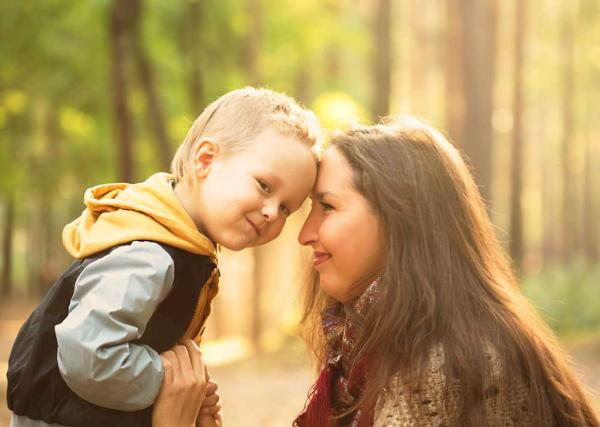
Remember that feeling you had when loading your baby into the car to bring him or her home from the hospital for the first time? That overwhelming feeling of love and pride and joy, and "You're just going to let us TAKE this baby home with no instructions or supervision or anything? Are you crazy? Do you KNOW us? We can't keep plants alive in our house!"
You've probably come a long way since then, but raising kids is never an easy task. And perhaps if we didn't understand how important this job is we wouldn't worry so much about it.
If your kids could better articulate what they wish you knew, here are seven things I believe they would tell you:
1. They don't want you to make them happy
As parents, we want so badly for our kids to be happy. We go to great lengths to help them feel happy and when they are mad, sad, afraid or unhappy, we try to talk them into choosing happy again. While this comes from a good place, consider for a moment the last time you felt sad or mad and someone tried to talk you out of it before you were ready to feel good. Negative emotion is a part of life, and when we give our kids permission to feel it, and love them anyway, they understand that they can handle it and that it doesn't mean anything is wrong with them or their experience. That's a valuable lesson.
2. They don't want to be told they are smart, talented or naturally gifted
When we praise what we view are innate abilities in a child, they hear the message that they should be good at things, and if they have to put in a lot of effort, they are less valuable. This kind of well-intended praise tends to make children fearful of failure or mistakes. When they face tasks that do not come naturally, they are more likely to not even try. Instead, praise their effort and encourage mistakes. People who are comfortable experiencing failure, and don't attach it to their intrinsic worth, are the people who do amazing things in this life.
3. They don't need elaborate décor or meals. They need you
While I believe it's fine to enjoy cooking or entertaining for a holiday or special occasion, it can easily get out of hand and become a stressful situation - and your kids feel it. When Easter dinner is over-the-top, the majority of the night is spent setting tables, cooking, and cleaning up the endless pile of dishes. Consider balancing things by spending less time on home and meals, and more time playing with and teaching your kids. Those moments spent in play create memories for them that will last much longer than the centerpiece on the table. Keep a healthy balance.
4. They don't want to be the reason you don't pursue your goals or dreams
How often do you find yourself thinking, "I would love to do that, but I can't because I have kids"? Now imagine your own mom or dad saying the same thing. Wouldn't you want to say, "Mom, go for it! You would be amazing at that and we can all pitch in and help and we'll be fine! You can do both. I know you can!"
Keeping priorities in order is important, but many people use their kids as excuses to stay small, hide and not take risks. Showing your kids that you're willing to show up in the world and contribute all you can will send an important message about their potential as well.
5. The way you talk to them becomes the way they talk to themselves
We all have an inner voice that talks to us and creates much of our self-esteem, and experts claim that the majority of that voice comes from the way our parents talked to us growing up. Many people spend a lot of money in counseling and coaching to recognize and then change that voice if it's not serving them well. But as a parent you can help mold a helpful inner voice for them now.
Being kind doesn't mean not being direct and honest. Help your child see when they've made mistakes and where they can improve themselves, but do it from a place of love and compassion rather than with a critical and frustrated tone. In the end, if they can self-assess and make corrections from a place of self-appreciation, they are likely to be more confident and compassionate with others as well.
6. They don't need you to be perfect
When you are able to make mistakes, be vulnerable, show weaknesses and imperfection and handle it with humility and grace, your kids get an amazing example of a powerful way to live. So many of us are hiding in an attempt to not show our faults, and our kids see that. Authenticity helps us feel connected to one another. Say you're sorry, show them where you are focused on learning and growing, and teach them that perfection is just an illusion and authenticity is a much more empowering way to live.
7. They love every little part of you
They aren't always able to articulate it, but your children love you. Some of them are lost and confused right now and they don't say it. Others are very small and don't know how to express themselves, but if they could tell you, they'd want you to know how much they love you - all of you. Your tough parts and your tender parts. Your fun parts and your scared parts. Even your squishy parts. They love and need exactly what you, and only you, have to offer.
Love on mama. And a happy Mother's Day to you.

